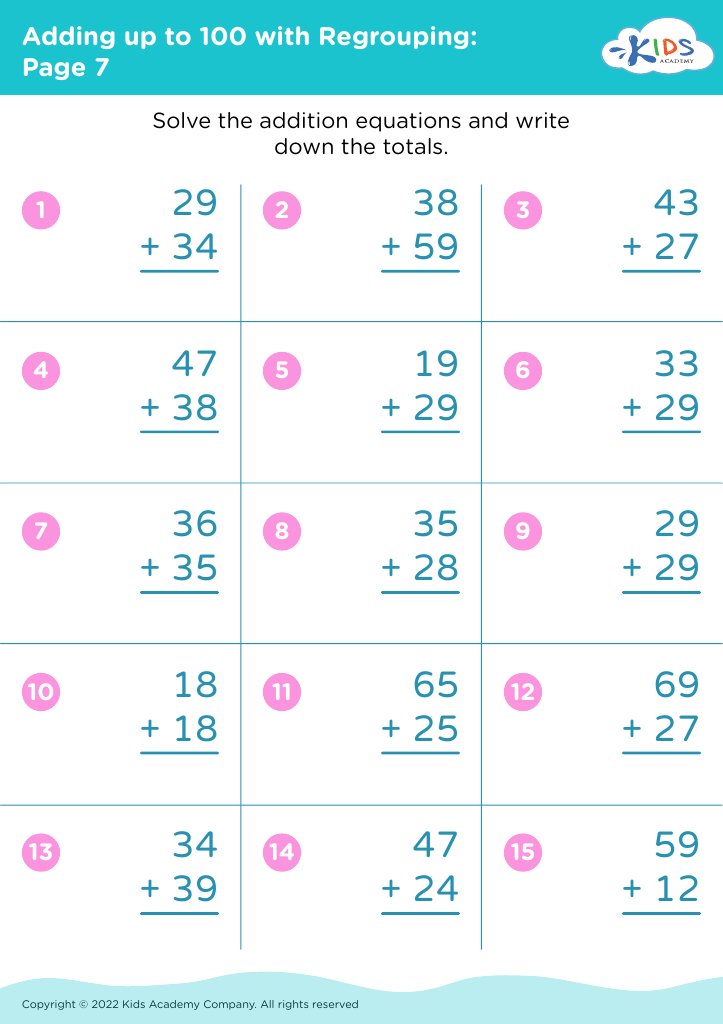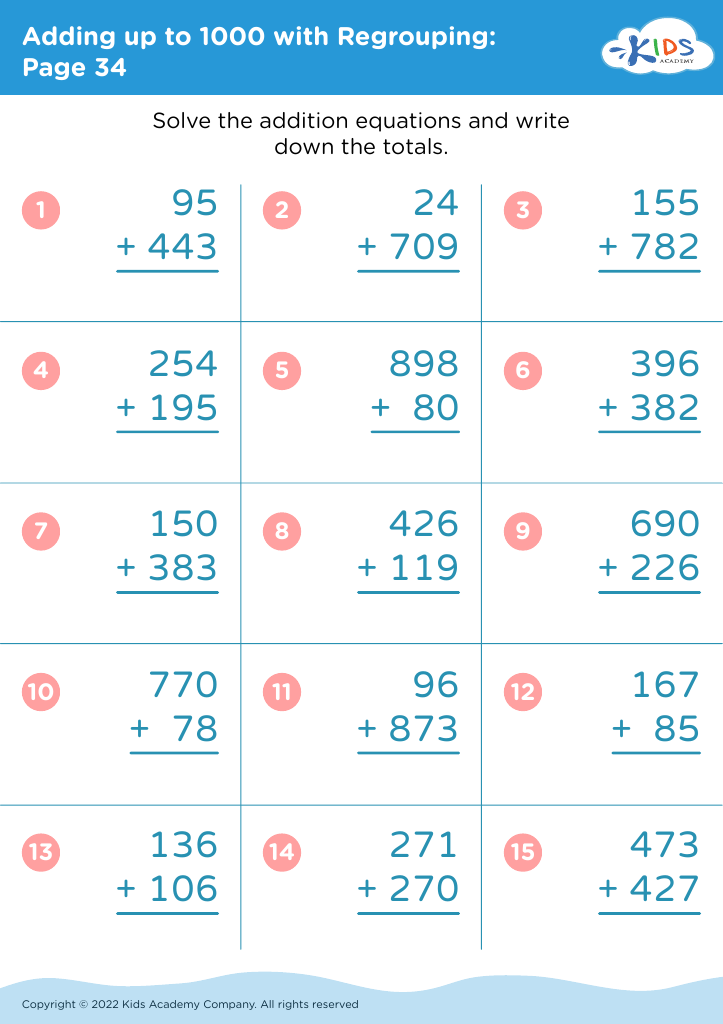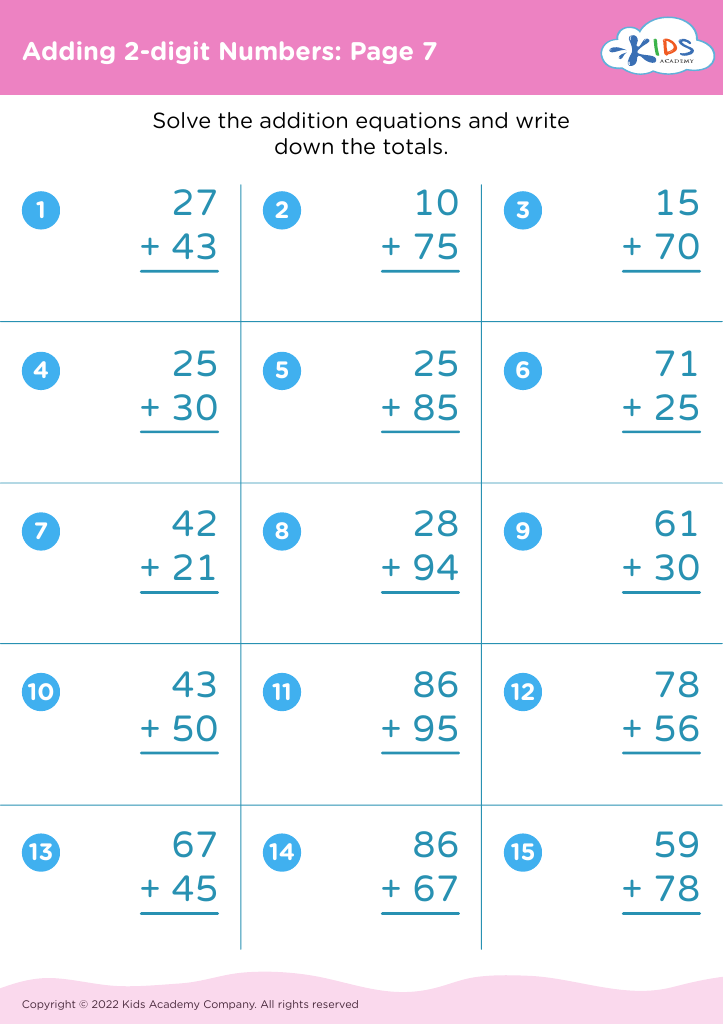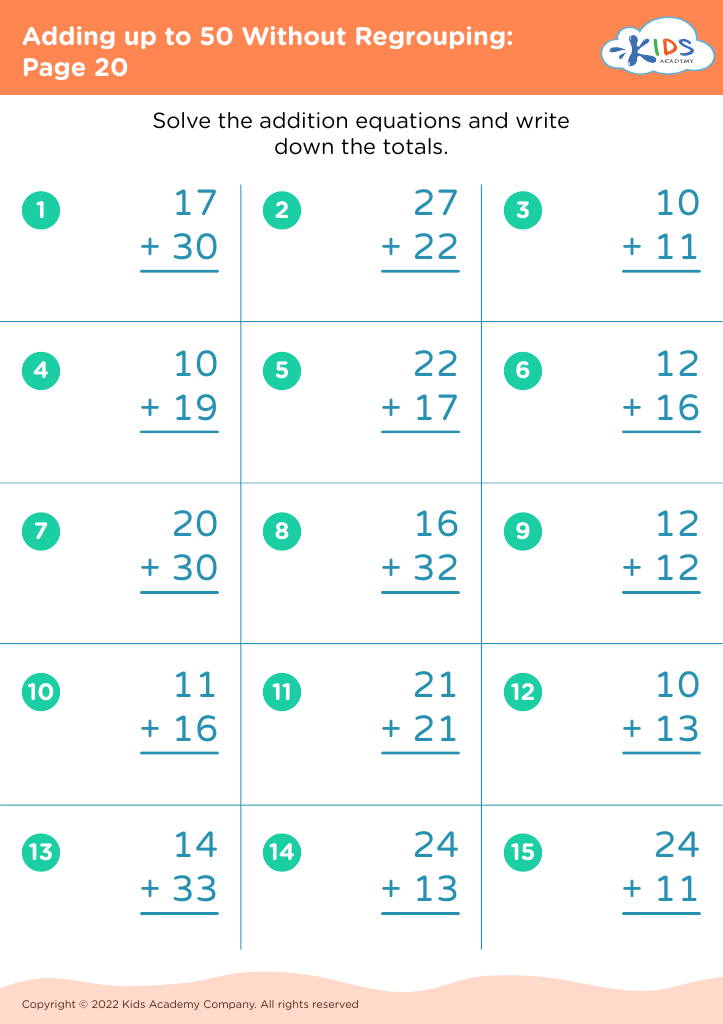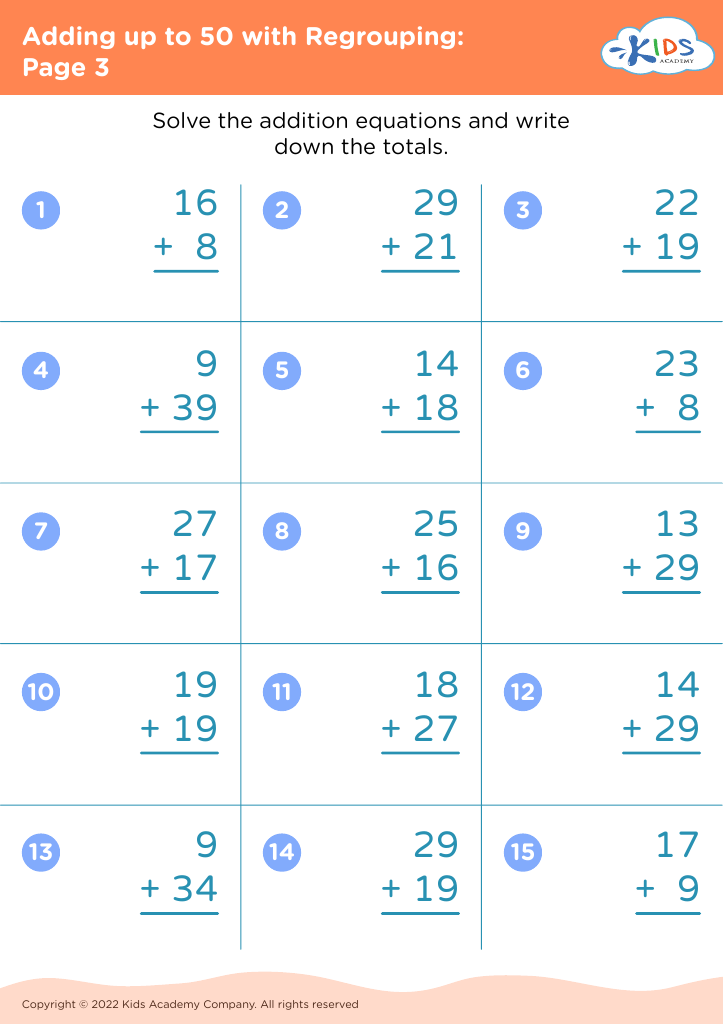Practice counting Addition Worksheets for Ages 8-9
6 filtered results
-
From - To
Enhance your child’s math skills with our engaging Practice Counting Addition Worksheets designed for ages 8-9. These carefully curated worksheets help students master key concepts in addition, building a strong mathematical foundation. Through interactive activities and vibrant designs, children can practice adding numbers in fun, creative ways. Perfect for classroom or home use, these worksheets offer a variety of problems to challenge young learners while keeping them motivated. Let Kids Academy's expert resources support your child’s journey to becoming confident in math, turning practice into a delightful adventure. Download today and watch them excel!
Parents and teachers should prioritize practice counting addition for children aged 8-9 because it lays a fundamental groundwork for future mathematical understanding and everyday problem-solving skills. At this age, children are transitioning from concrete to more abstract mathematical concepts, and proficiency in basic addition is crucial for this development. Mastery of addition builds confidence and encourages a positive attitude towards math, which is essential for tackling more complex operations later on, such as multiplication, division, and fractions.
Moreover, practicing counting and addition enhances cognitive skills, including memory, attention, and logical reasoning. It helps children recognize patterns, understand numerical relationships, and develop mental math strategies, thereby improving their overall math fluency. This foundational competence is not only vital for academic success but also for real-life applications, such as time management, financial literacy, and decision-making.
Lastly, consistent practice in addition fosters a growth mindset by showing children that effort and practice lead to improvement. This encourages persistence and resilience in learning, traits that are beneficial across all educational subjects and life situations. By investing time in teaching and reinforcing addition skills early on, parents and teachers equip children with essential tools for both academic and personal growth.
